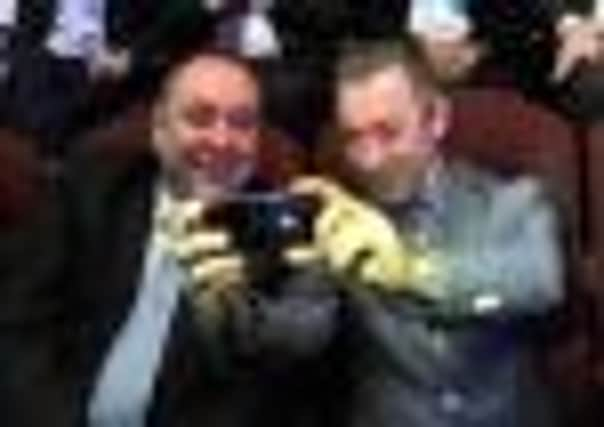Eddie Barnes: The SNP is trying the foot-in-the-door technique


A test group was split into two halves. One was asked to sign a petition against drink-driving, the other half were not. The whole group was then asked to ensure that, when they went out and had a few drinks, they should call a taxi to go home rather than driving. The result? The group who had signed the petition were significantly more likely to do so than the second.
The theory goes by the name of foot-in-the-door psychology. SNP activists on the streets last week were pictured on TV doing much the same thing, except with independence, not taxis. The opening pitch, as set out by Alex Salmond last week, is to ask people whether or not they think Scotland is best run by the people who care most about it, the people who live here. “I go along with that,” says one senior Scottish Labour figure, noting the “yes-ness” of the question.
Advertisement
Hide AdAdvertisement
Hide AdLeaving aside the minutiae of, for example, whether spies in Edinburgh would really be better than those currently based in Cheltenham, the hope is that, having bought into this, Scots will be that much more likely to hail a cab marked independence.
The initial signs are that the distance from the first “yes” to the second one is rather wide – as witnessed on Sunday night, when, during a BBC debate, Deputy First Minister Nicola Sturgeon faced a host of sceptical, detailed questions on the nitty-gritty of her plans.
But, as ever, SNP campaigners have a plan. A Herculean doorstep campaign will now get under way. Their aim is to address each voters’ concerns individually. Such a community based effort has the advantage of going on unseen by the media and political opponents.
The scale of this effort is also why, campaigners say, they launched the campaign so early last week, more than two years before the referendum. With perhaps 80 per cent of the population likely to vote, they simply need the time to get around.
Given the SNP’s organisational skills, and its deep pockets, that vast task is in the realms of the possible. But it also points to the very weaknesses of the cause. The polls do not lie: support for independence isn’t going anywhere. The 29-month campaign is therefore an acknowledgement that the camp needs time in order to find some momentum.
What’s more, the pro-Union side adds, the fact that Mr Salmond is having first to sell a vague, nice-sounding principle – rather than just selling independence – shows up his lack of confidence in his real goal.
That ailing confidence will be confirmed, they claim, if Mr Salmond spends the next few months backing calls for a second question in the referendum on “devo-max”. All told, the foot in the door may work. But as for sales? So far, not enough.